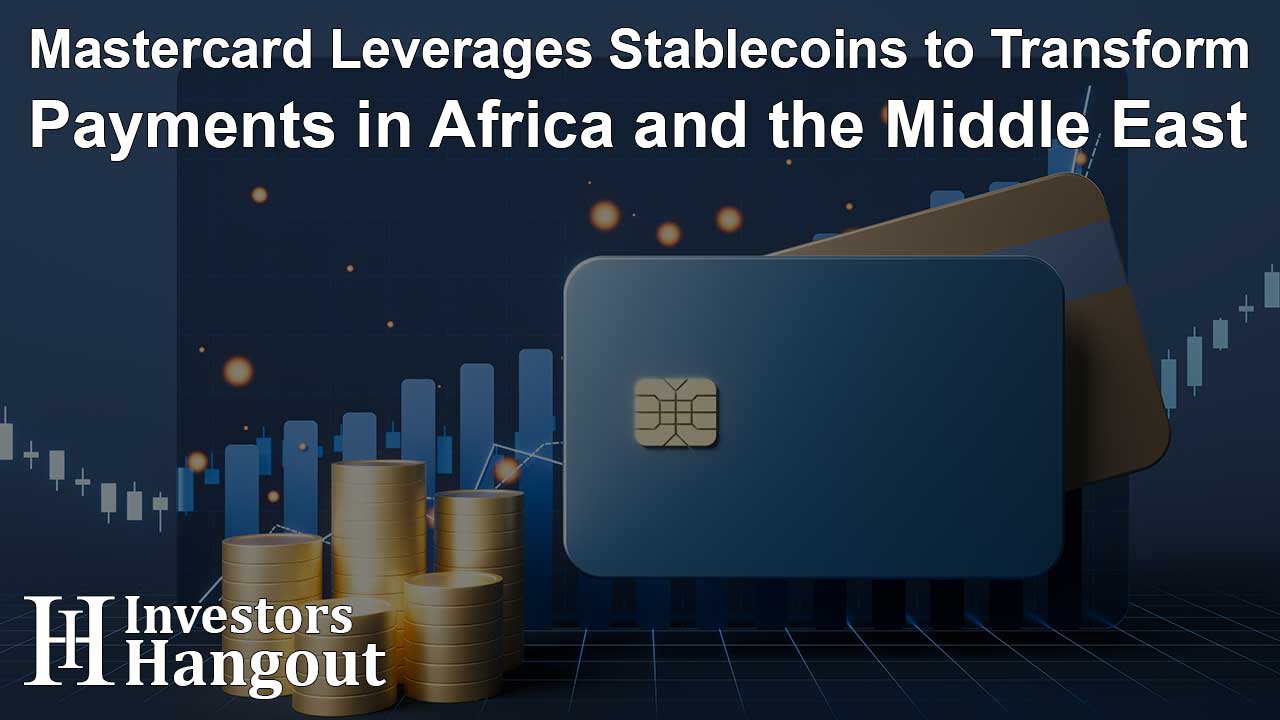Mastercard Leverages Stablecoins to Transform Payments in Africa and the Middle East

In a big move for payment tools, Mastercard recently announced it would begin using stablecoins (USDC and EURC) for settlements. They plan to do this in the EEMEA regions — Eastern Europe, the Middle East and Africa.
The first banks to adopt it are Arab Financial Services and Eazy Financial Services, both from Bahrain. The plan comes after a successful partnership with Circle. And this could represent a step forward for big firms using digital money in new markets, driving institutional adoption of stablecoins in emerging strategic regions.
This offers a concrete and tangible use for crypto-technology, although far from the Ethereum price, since stablecoins have the exact same value as the fiat currency they are backed by. Once the strategy was in place, all that was needed was a reliable supplier.
The strategic partnership with Circle
Mastercard chose Circle because its stablecoins — USDC and EURC — seem solid and trustworthy. Circle places significant emphasis on transparency, regulation, and compliance, which makes its system safer.
This focus distinguishes it from many other issuers who don’t prioritize regulatory matters to the same degree. Also, Circle’s global liquidity and tech platform give Mastercard reliable payment rails, a bridge that links traditional banking to the new digital coins.
Therefore, this partnership could help stablecoins spread faster in places like Africa and the Middle East, where people require quick and steady transactions. The credibility, the compliance record, the deep liquidity and the infrastructure that Circle offers are compelling reasons for the partnership.
How it really works
It's not yet about the consumer "paying in crypto at the checkout." The innovation lies in the settlement chain:
-
When customers make a payment through their card or digital wallet, the receiver can be settled in USDC or EURC.
-
Partner merchants can receive their funds directly in stablecoins, rather than in local fiat currency.
-
Everything is backed by Mastercard's compliance solutions (Crypto Credential, Crypto Secure), ensuring strict monitoring of transactions.
AFS (Arab Financial Services) and Eazy Financial Services already act as major players in the Middle East’s move toward digital payments. If they start using stablecoins, this could encourage African fintechs and banks may follow suit.
Therefore, it could spark new ideas and develop micro-payment, e-commerce, and inclusive financial service solutions, that could benefit the local market.
Banking in many African and Gulf countries still runs T+1 or T+2 settlement cycles with daily cutoff times, which can delay transaction movement. Stablecoins that are settled on blockchains, however, will facilitate near-instantaneous transfers. Such a solution allows merchants to face far less liquidity risk.
Currency fluctuations have a considerable impact on merchants and regional SMEs. Receiving funds directly in USDC or EURC could protect them against local currencies’ instability, and help them manage their international flows.
Additionally, Sub Saharan Africa faces high remittance charges, over 7%. Integrating USDC within banking systems via Finastra (which acts as the bridge between Mastercard and regional players) may result in lower fees, faster transfers, and improved transparency.
While digital payments and stablecoins gain traction in emerging regions, traditional assets remain in focus as well, with the gold rally continuing amid investor interest in safe-haven investments
A strong signal for the future of payments
Mastercard’s pilot in Africa and the Middle East is a major step toward new ways to solve payment issues. Those regions have fast growing populations, a huge diaspora, many users on mobile money apps, and significant demand for sending money home and buying online.
Therefore, this initiative could cut the fees people pay for each transaction. It might also include more unbanked individuals in the formal system.
This initiative will reduce transaction costs, could broaden financial access for people living in remote areas, and might open up fresh payment routes linking Africa, the Gulf and the wider world. That could bring the promise of stablecoins closer to their real-world utility.
About The Author
Contact Owen Jenkins privately here. Or send an email with ATTN: Owen Jenkins as the subject to contact@investorshangout.com.
About Investors Hangout
Investors Hangout is a leading online stock forum for financial discussion and learning, offering a wide range of free tools and resources. It draws in traders of all levels, who exchange market knowledge, investigate trading tactics, and keep an eye on industry developments in real time. Featuring financial articles, stock message boards, quotes, charts, company profiles, and live news updates. Through cooperative learning and a wealth of informational resources, it helps users from novices creating their first portfolios to experts honing their techniques. Join Investors Hangout today: https://investorshangout.com/
